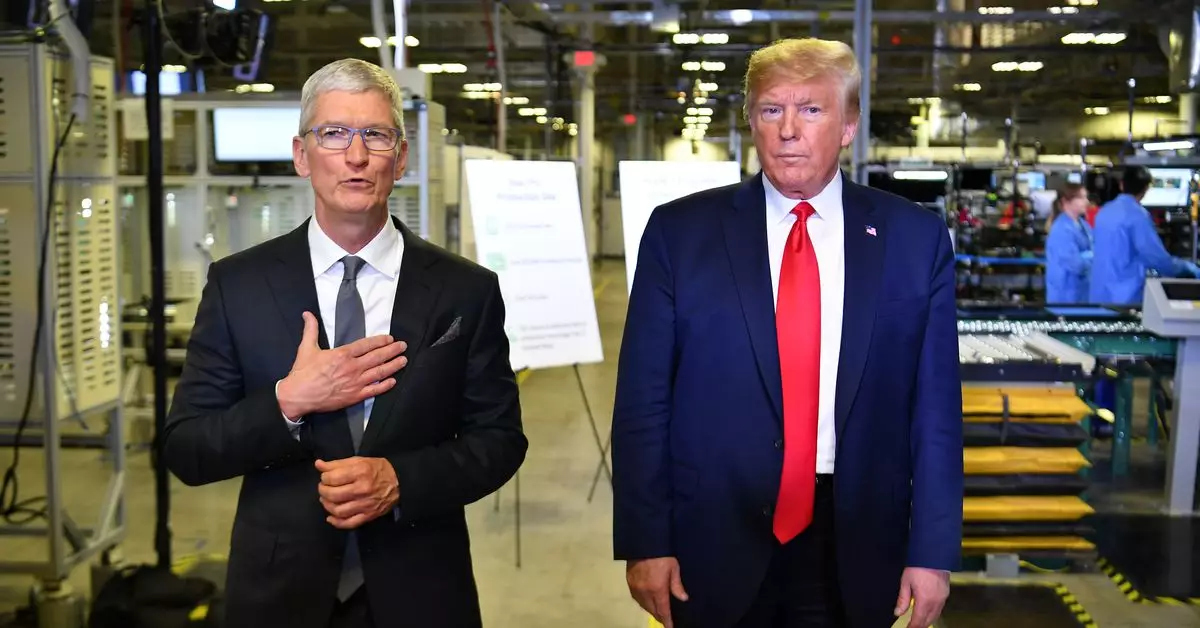In an era where the relationship between corporate giants and political leaders can significantly shape policy decisions and economic landscapes, Apple CEO Tim Cook stands out for his remarkable rapport with former President Donald Trump. Unlike many technology executives who struggled to engage with the Trump administration, Cook adopted a personalized and strategic approach that allowed him to influence key policies, such as tax reforms and tariffs, to the benefit of his company. This articulation of a strong yet personalized connection serves as a case study for other CEOs aiming to cultivate similar relationships in an increasingly political business environment.
Cook’s Tactical Approach
Cook’s method was characterized by a blend of simplicity and directness. According to reports, he avoided sending lobbyists or government relations teams into the fray. Instead, he took personal charge of the discussions through direct phone calls and face-to-face meetings with Trump. This hands-on strategy diverged from traditional corporate lobbying methods, suggesting that personal outreach can be more impactful in achieving desired outcomes. Furthermore, Cook’s meetings were meticulously structured, centering on singular data points to maintain focus and prevent conversations from veering off course. This disciplined approach not only streamlined the dialogue but also made it easier to illustrate Apple’s contributions and align them with Trump’s priorities.
The Importance of Mutual Interests
A significant facet of Cook’s outreach to Trump was his emphasis on areas where Apple’s interests resonated with the administration’s agenda. This intersection of business needs and political goals enabled Cook to frame discussions that showcased how certain policies could yield mutual benefits. By focusing on shared objectives, Cook managed to gain traction in a political landscape often fraught with competing interests. For business leaders aiming to replicate Cook’s success, identifying and articulating mutual interests with political figures may very well be the key to effective engagement.
The effectiveness of Cook’s relationship with Trump has not gone unnoticed by other corporate leaders. The Wall Street Journal reported that executives from major companies like Boeing and FedEx have attempted similar strategies in dialogue with Trump. Moreover, some have sought alternative communication routes, inspired by Elon Musk’s successful rapport with the former president. This trend underscores a growing recognition among tech leaders of the importance of directly engaging with political figures to safeguard their interests and influence policy.
As the tech industry grapples with the ramifications of political decisions, Cook’s relationship with Trump serves as an instructive blueprint for other CEOs. As seen through Cook’s experience, establishing favorable conditions for dialogue—rooted in simplicity, directness, and mutual interests—can prove critical in forging influential connections. In an intricate political landscape, where the lines between business and governance often blur, understanding and implementing these tactics may enhance the ability of technology firms to navigate challenges while advocating for their interests.
In a world where personal relationships are increasingly vital to business success, Cook’s approach not only illuminates the path taken by Apple but also highlights the importance of personal engagement amidst the complexities of modern corporate governance.


Leave a Reply